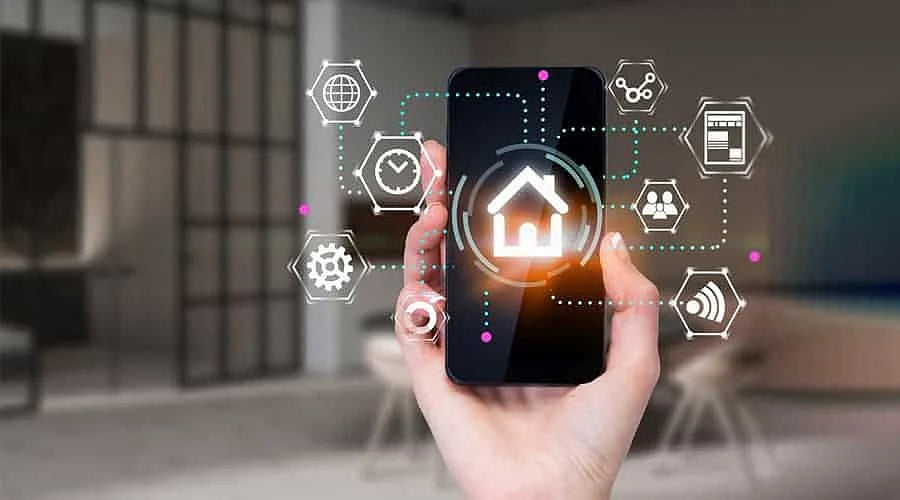
Is Eco-Friendly Home Automation Worth It? Exploring the Benefits
Share
As the world increasingly shifts towards sustainable living, the question arises: Is eco-friendly home automation worth it? For tech professionals and enthusiasts, the integration of eco-friendly solutions into smart homes is not just a trendit's an exciting evolution that promises efficiency, convenience, and environmental responsibility. In this article, we'll delve into the numerous advantages of adopting eco-friendly home automation and explore how it can redefine modern living.

The Rise of Eco-Friendly Home Automation
Modern technology has paved the way for innovative solutions that not only enhance our lives but also reduce our carbon footprint. Eco-friendly home automation is at the forefront of this movement, combining the latest technological advancements with sustainable practices. According to a recent report, the adoption of green technology in homes is expected to grow exponentially over the next decade, driven by increased awareness and advancements in IoT (Internet of Things) devices.
For those passionate about technology, the opportunities to experiment with DIY eco-friendly IoT projects are endless. From smart thermostats to energy-efficient lighting systems, eco-friendly home automation solutions are not only viable but are becoming essential components of modern homes.
Key Benefits of Eco-Friendly Home Automation
1. Energy Efficiency
One of the primary benefits of integrating smart home technology with eco-friendly practices is energy efficiency. Automated systems can optimize energy use by adjusting lighting, heating, and cooling based on occupancy and time of day. This not only reduces energy consumption but also lowers utility bills, offering substantial savings over time.
2. Environmental Impact
Eco-friendly home automation significantly reduces the carbon footprint by minimizing energy waste. By utilizing renewable energy sources and efficient appliances, homeowners can contribute to a more sustainable future. For instance, smart solar panels can be integrated into home automation systems to maximize energy production and storage.
3. Improved Home Value
Homes equipped with sustainable automation systems have been shown to increase in value. As more homebuyers prioritize sustainability, properties with eco-friendly features become more attractive in the real estate market. This trend underscores the importance of sustainable home automation as a sound investment for the future.
4. Enhanced Convenience and Comfort
The integration of smart devices not only makes homes more energy-efficient but also enhances comfort and convenience. Automated systems can learn user preferences, offering personalized settings that improve the overall living experience. For example, smart lighting systems can adjust to natural light levels, ensuring optimal brightness throughout the day.
Challenges and Considerations
While the benefits are clear, there are considerations to keep in mind when implementing eco-friendly home automation. Initial costs can be high, although they are often offset by long-term savings. Additionally, the integration of these systems requires a certain level of technical understanding and ongoing maintenance.
For those interested in exploring more sustainable home options, resources like Hometech1's guide on sustainable living provide valuable insights into the latest trends and technologies.
The Future of Eco-Friendly Home Automation
Looking ahead, the future of eco-friendly home automation is bright. As technology advances, the integration of AI and machine learning will further enhance the capabilities and efficiency of smart home systems. This promises not only to improve energy management but also to create homes that are more responsive to the needs of their occupants.
For those keen on the latest trends, Greenly's overview of green technology offers a comprehensive look at current innovations shaping the industry.
Conclusion
In conclusion, the question Is eco-friendly home automation worth it? is met with a resounding yes. The numerous benefitsfrom energy savings to increased home valuemake it a worthwhile investment for tech enthusiasts and professionals alike. As we move towards a more sustainable future, the integration of eco-friendly technologies into our homes will continue to play a pivotal role in shaping modern living.

FAQs
What are the cost implications of eco-friendly home automation?
While initial costs can be high, the energy savings and increased home value often offset these expenses over time.
How does eco-friendly home automation contribute to sustainability?
It reduces energy consumption and carbon footprint by optimizing the use of resources and integrating renewable energy sources.
Are there any maintenance requirements for these systems?
Yes, regular updates and maintenance are necessary to ensure optimal performance and integration of new technologies.
